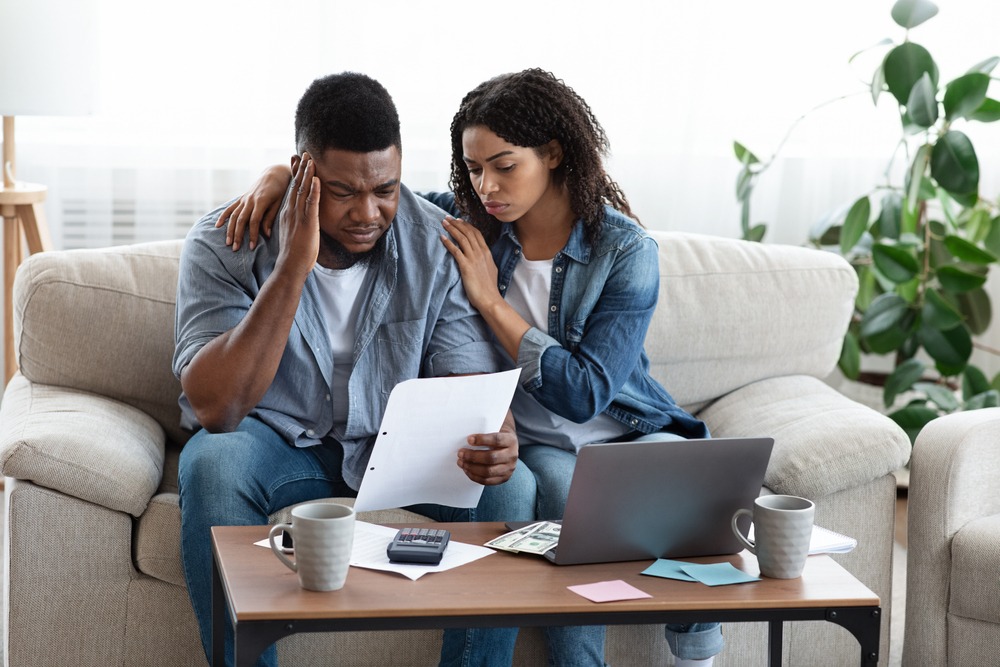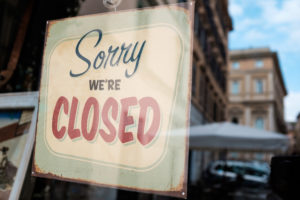
Although many people think that filing for bankruptcy is the easy way out, you shouldn’t file for bankruptcy without thoroughly understanding your options. Bankruptcy filing isn’t an easy process, and it isn’t something that you should take lightly. It’s a serious decision that may carry long-lasting consequences.
Before you decide to file for bankruptcy, you could have a Rutherfordton bankruptcy lawyer review your case. They could explain whether your case merits filing for bankruptcy and the different bankruptcy Chapters available to you.
The Pros and Cons of Declaring Bankruptcy
With any major decision like bankruptcy, there are going to be pros and cons that you will need to weigh against your needs and best interests. A bankruptcy lawyer can take an impartial look at your circumstances and provide some guidance. Let’s take a look at a few of those pros and cons:
1) Short-term Vs. Long-term Costs
Filing for bankruptcy comes at a cost. The court filing fee alone is typically at least $300. In addition, you may have to pay attorney fees on top of those costs. The prices vary depending on where you live, but they’re typically between $800 and $6,000 per case.
On the other hand, filing bankruptcy to clear thousands of dollars in debt might be more beneficial than repaying your debts directly.
Personal Injury Lawyer Near Me 828.286.3866
2) The Effect on Your Credit Score
Your credit score will likely drop after filing for bankruptcy because it shows up on your credit report as a negative mark that can stay there for years after the discharge date (when all debts are finally discharged). Bankruptcy can also make it harder in the short term to get approved for loans or lines of credit.
For instance, if you are at the point in your life when you are hoping to acquire a mortgage for a new home or to pass credit checks to rent a property or obtain a new job, declaring bankruptcy could harm your chances of passing this hurdle. At the least, it could require you to wait longer to apply for credit. Creditors may view you as high risk and inquire whether you have ever filed for bankruptcy.
However, someone who already has negative marks on their credit report may find that bankruptcy puts them on a faster path toward improving their credit.
3) Retention or Loss of Assets
Depending upon your circumstances, you could lose assets like your house or car. When you file for bankruptcy, all non-exempt property may be sold at auction (to pay off creditors) unless it is exempt (which varies by state). Even if you don’t own much worth selling, the process could extend your bankruptcy case by months and may involve additional legal fees.
With the assistance of a bankruptcy lawyer, they could view your case and find bankruptcy options that allow you to retain personal property like your home and car.


4) Discharging Debts
You might think filing for bankruptcy can wipe out all your debts, but this isn’t always the case. In most cases, it only eliminates certain types of debtors, like medical debt or credit card debt, while leaving others intact.
For instance, settling unsecured debts such as those accrued on your credit cards, unsecured lines of credit, payday loans, and other personal loans is possible. However, you may not be able to discharge certain debts, such as court-ordered fines, alimony and child support payments, and fraud-related debts, if you file for bankruptcy. Student loans are another category of debts that are typically not discharged in the bankruptcy process.
A bankruptcy lawyer can explain which of your debts will be affected by filing for bankruptcy. They can help you file under the bankruptcy Chapter that will discharge the most debt while still retaining as many assets as possible.
5) Doing What’s Best for Your Family
Some may view bankruptcy as an admission that you can no longer manage your finances and that your financial situation is beyond redemption. In reality, things happen, and some people just need more time to get back on their feet before making payments again.
Filing for bankruptcy may be the best solution for you and your family, but it does not necessarily solve any underlying difficulties or habits. Even when things start looking up again, you must continue making intelligent financial decisions.
Also, you shouldn’t let the social stigma of bankruptcy discourage you. With the help of a bankruptcy law firm, you can give yourself and your family a second chance to get back to solid financial future.
Seek the Guidance of a Bankruptcy Attorney
Bankruptcy law is complicated and involves many different factors. It’s almost impossible to understand all its nuances without the help of an attorney. A bankruptcy attorney can help you understand your options and find the best bankruptcy Chapter for your situation.
You are well within your rights to do so on your own, but you shouldn’t file for bankruptcy until you speak with a lawyer. Our attorney for bankruptcy can help you understand your bankruptcy alternatives. Contact us online, and let us review your case.












